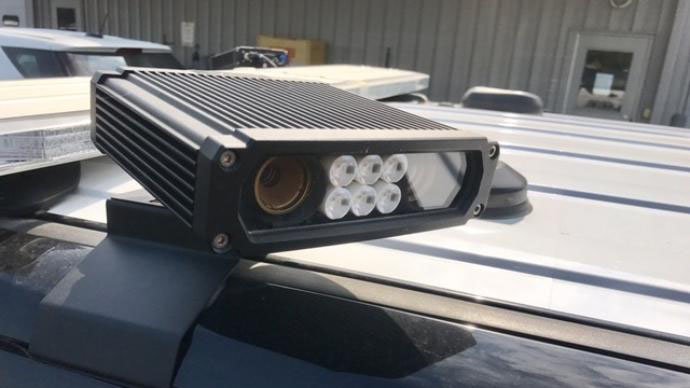The Manteca Police Department was named on Wednesday by the American Civil Liberties Union as one of six law enforcement agencies in Northern California sharing data with a controversial private company that has made its information available to the Immigration and Customs Enforcement Agency.
The move, as described in the press release by the Northern California chapter of the civil liberties organization, could be running afoul of a California law that prohibits law enforcement agencies from sharing information with federal immigration authorities if that information is being used for the sole purpose of deportation.
But according to Manteca Police Sergeant Steve Schluer, the department hasn’t shared any information with Vigilant Solutions – a license plate reader database company that has a $6.1 million contract with ICE – for at least 18 months and has now taken steps to ensure that any information that they may have is not shared with the company moving forward.
“We are not in the business of violating California law,” Schluer said. “We had a vehicle that had a license plate reader on it, and that vehicle hasn’t been functioning for almost 18 months.
“We do have a subscription with Vigilant to send and receive data, but the vehicle that was capable of doing that hasn’t been functional and we’ve taken steps to make sure that information is not shared with them in the future.,” Schuler said.
The company in question, Vigilant Solutions, stores as many as 200 million license plate scans every month from mounted and portable license plate readers utilized by cities, tow trucks, and parking companies. That information, the ACLU says, becomes a treasure trove for law enforcement who are able to track the unique movements of individuals for any one of a number of reasons.
The database was marketed initially as a way for financial companies to track down auto financers who were delinquent on payments.
The contact between the company and the Federal agency tasked with handling the deportation of people believed to be in the country illegally first surfaced last year, and it was through a Freedom of Information Act lawsuit that the ACLU learned of regional and local law enforcement agencies sharing their information with the company that could then be accessed by more than 9,000 ICE agents.
The Manteca Police Department as well as the Stanislaus County Sheriff’s Office and the Stanislaus County Auto Theft Task Force were named as half of the agencies in Northern California participating, and the Merced Police Department, Tulare Police Department, and Sutter County Sheriff’s Office were also named in a press release distributed throughout the northern part of the state.
“It is appalling that ICE has added this mass surveillance database to its arsenal, and that local law enforcement agencies and private companies are aiding the agency in its surveillance efforts,” said Vasudha Talla, a staff attorney with the ACLU of Northern California. “Local law enforcement agencies must immediately stop sharing their residents’ information with this rogue and immoral agency.”
According to Schluer, the department has been vigilant in making sure that their information is not shared with federal agencies for deportation purposes ever since California adopted SB54, the California “sanctuary” policy, last year. According to the ACLU, the practice could also potentially be a violation of SB34, which requires any information shared with out-of-state or federal agencies be done so through a signed agreement.
The City of Manteca has flirted with the idea of installing license plate readers in the past as a way to notify law enforcement of stolen vehicles and wanted persons who are driving through the community, and the City of Lathrop was all set to approve the purchase and installation of a number of the cameras earlier this year but pulled the proposal at the last minute for further study.
While the cameras can beneficial for law enforcement agencies, they have long been the bane of civil liberties activists who see their use as a way to collect massive amounts of data that can be used to track law-abiding citizens and could create the potential for the abuse of that information.





